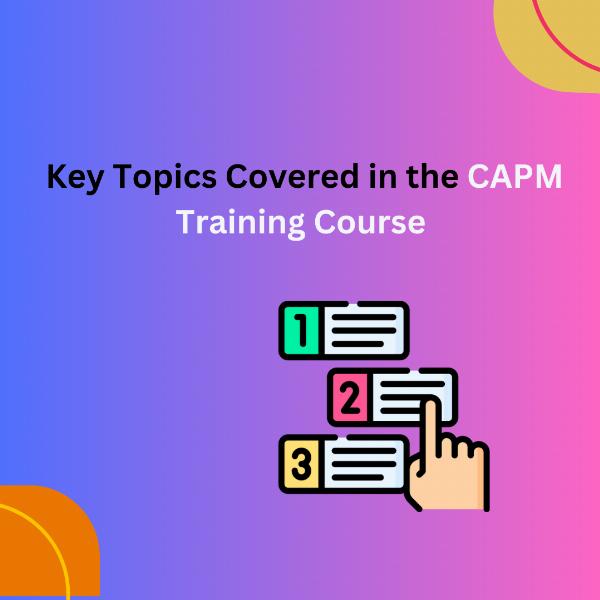What Are the Key Topics Covered in the CAPM Training Course?

Strong 8k brings an ultra-HD IPTV experience to your living room and your pocket.
The Certified Associate in Project Management (CAPM) certification, offered by the Project Management Institute (PMI), is designed for individuals looking to establish a solid foundation in project management principles. The CAPM training course covers a wide range of topics essential for aspiring project managers and is structured to align with the latest exam syllabus. Here’s a detailed overview of the key topics you can expect to learn in a CAPM training course.
1. Project Management Fundamentals and Core Concepts
The CAPM training begins with an introduction to the fundamental concepts of project management. This includes understanding what a project is, the project lifecycle, and the role of a project manager. You will learn about the key attributes that define successful projects and how they contribute to organizational goals. This foundational knowledge is crucial for anyone entering the field of project management.
2. Predictive, Plan-Based Methodologies
A significant portion of the course focuses on predictive project management methodologies, where projects are planned in detail before execution. You will learn about various planning processes, including scope definition, schedule development, and cost estimation. Understanding these methodologies helps you manage projects with a structured approach, ensuring that all aspects are considered before work begins.
3. Agile Frameworks and Methodologies
In addition to traditional methodologies, the CAPM course introduces Agile frameworks that emphasize flexibility and iterative progress. You will explore Agile principles, roles, and practices, learning how they can be applied to enhance project delivery. This knowledge is increasingly important as organizations adopt Agile practices to respond quickly to changing market demands.
4. Business Analysis Frameworks
Business analysis is integral to project management, as it helps identify stakeholder needs and ensure that projects deliver value. The CAPM training covers essential business analysis concepts, including requirements gathering, stakeholder engagement, and solution assessment. By mastering these skills, you will be better equipped to align project outcomes with business objectives.
5. Project Integration Management
Project integration management involves coordinating all aspects of a project to ensure it runs smoothly. You will learn about developing project charters, managing stakeholder expectations, and integrating various project components effectively. This topic emphasizes the importance of maintaining alignment between project activities and organizational goals.
6. Scope Management
Managing project scope is critical for preventing scope creep and ensuring that all necessary work is completed. The training covers techniques for defining and controlling scope through effective requirements management and scope verification processes. You will learn how to create a work breakdown structure (WBS) that organizes tasks into manageable components.
7. Time Management
Time management techniques guarantee that projects are finished on schedule. In this section of the course, you will learn about scheduling techniques, including Gantt charts and critical path method (CPM). You will also explore resource allocation strategies that help optimize team productivity while adhering to timelines.
8. Cost Management
Understanding project costs is vital for staying within budget constraints. The CAPM course covers cost estimation techniques, budgeting processes, and financial analysis methods necessary for effective cost control throughout the project lifecycle.
9. Quality Management
Quality management ensures that project deliverables meet established standards and stakeholder expectations. You will learn about quality planning, assurance, and control processes that help maintain high-quality outputs while minimizing defects.
10. Risk Management
Risk management is essential for identifying potential issues that could impact project success. The CAPM training includes techniques for risk identification, assessment, response planning, and monitoring. By mastering these skills, you can proactively manage risks and mitigate their effects on your projects.
Conclusion
The CAPM training course provides a comprehensive overview of essential topics in project management, preparing you for entry-level positions in the field. By covering key areas such as predictive methodologies, Agile frameworks, business analysis, integration management, scope management, time management, cost management, quality management, and risk management, this certification equips you with the knowledge needed to succeed as a project manager.
Whether you are new to project management or looking to formalize your understanding of core concepts, completing the CAPM training course can significantly enhance your career prospects and set you on a path toward advanced certifications like the Project Management Professional (PMP). With this foundational knowledge in hand, you can confidently contribute to successful projects across various industries.
Note: IndiBlogHub features both user-submitted and editorial content. We do not verify third-party contributions. Read our Disclaimer and Privacy Policyfor details.


